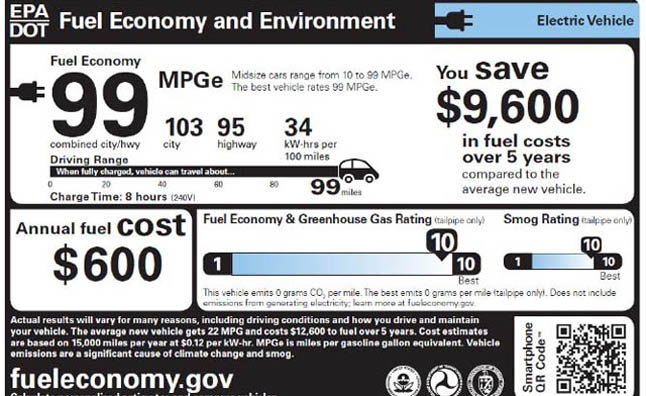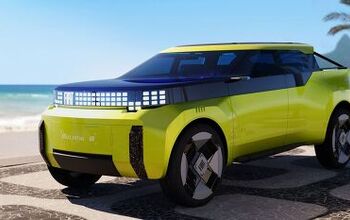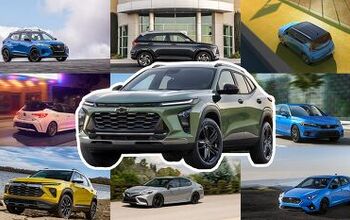What is MPGe: Electric Car Fuel Economy Ratings Explained

Ford recently announced the EPA fuel efficiency rating for its electric Focus model. Since it doesn’t burn any gasoline, the number isn’t in miles per gallon (MPG), but was given as miles per gallon gasoline equivalent, or MPGe. A new term to the automotive lexicon, it’s worth exploring exactly what MPGe means and how an MPGe rating is determined, especially as the number of electric cars and plug-in electric hybrids on the roads continues to increase.
Why use MPGe?
In order to compare the fuel efficiency of various vehicles, MPGe had to be introduced. The rating first came into use with the fully electric Nissan Leaf and the Chevrolet Volt, which offers a plug-in option to deliver anywhere from 25 to 40 miles of electric range before the gasoline engine kicks in to charge the car’s batteries, which continue to power the electric motor and the wheels.
Since electric vehicles don’t use gas, the traditional miles per gallon measurement wouldn’t make much sense. The most appropriate measurement would be Kilowatt Hours (kWh) since that’s the way electricity usage in houses is measured. However, using kWh makes it difficult to compare electric cars to non-electric cars. That’s why MPGe was created, to be able to compare the fuel efficiency of electric cars to other vehicles. MPGe is also an appropriate unit of measurement for other alternate fuels, like hydrogen, or compressed natural gas.
How do we get MPGe numbers?
In order to compare gas and electricity consumption, a common unit that measures energy is required. Burning one gallon of gasoline creates 115,000 BTU. The electrical equal to this is 33.7 kWh. Therefore, the distance an electric vehicle can travel on 33.7 kWh of electricity is comparable to how far a conventional internal combustion vehicle can travel on one gallon of gasoline.
Comparing MPGe of electric vehicles.
Comparing the MPGe of Electric vehicles is possible, so let’s take a look at how they stack up. For the Volt, Fisker Karma and Prius PHEV keep in mind that these vehicles are equipped with a gas powered range extender. This means we can use gas MPG numbers for part of the EPA rating.
Fisker, only gave us one MPGe number, the combined one. Tesla would not give us MPGe numbers of their roadster, or upcoming Model S, or Model X vehicles.
Where does MPGe fall apart?
The major problem with MPGe is that it doesn’t say exactly what electric car owners need to know. Range is probably the most important number that electric car buyers will want to look at. While range is present on the EPA sticker label, it’s just not as prominent as MPGe. As you can see in the chart above, MPGe has no relationship on range. Electric vehicles really depend on battery size to determine range, so that would be another key specification prospective buyers should take a look at.
As more and more electric vehicles come onto the market, this should start to overshadow the MPG numbers. Additionally, MPG numbers are losing trust with consumers. Some manufacturers are using the more generous (by roughly 25%) CAFE numbers instead of actual EPA test numbers which can further mislead customers.
With electric vehicles only making up 1% of the total cars purchased, the MPGe number plays a greater role, helping consumers to compare with conventional cars. As more electric vehicles enter the market, MPGe numbers will be less relevant, and buyers can look range as a defining factor in buying their cars.

Sami has an unquenchable thirst for car knowledge and has been at AutoGuide for the past six years. He has a degree in journalism and media studies from the University of Guelph-Humber in Toronto and has won multiple journalism awards from the Automotive Journalist Association of Canada. Sami is also on the jury for the World Car Awards.
More by Sami Haj-Assaad


































Comments
Join the conversation
So if The BMWi3 gets 100 miles from 29KWH, and if I pay $.21 per KWH, then it costs me about $6.00 to go 100 miles! I'm paying about $2.00 a gallon for gas, so $6 worth would take me well over 150 miles! Why would I want an electric car?
While MPGe is a somewhat useful number to make comparisons between various electric cars, the number itself it based on poor engineering. The article state correctly that burning one gallon of gasoline produces 115,000 BTU of heat. It then states this is equivalent to 33.7 kWh of electrical energy. Here is where things get complicated: 1. It is true that 33.7 kWh of electricity "burned up" in resistors (think a portable electric space heater) produces 115,000 BTU of heat. BUT.... 2. 115,000 BTU of heat CANNOT be converted into 33.7 kWh of electrical energy. The best state-of-the-art combined cycle natural gas power plants (gas burned in a gas turbine, with the gas turbine exhaust then used to boil water for a steam turbine, both turbines generating electricity) can convert just over half of the combustion heat from natural gas into electricity. Even the best fuel cells (running on pure hydrogen and oxygen) are not much more efficient. 3. Referring back to #1, 33.7 kWh of electricity can be turned into much more than 115,000 of heat using heat pumps. Heat pumps used for space heating and water heating can easily produce 3x heat (345,000 BTU, at lower temperatures) from 33.7 kWh of electricity. Electrical and mechanical energy are both "high quality" energy. Heat is "low quality" energy. To convert heat into electrical or mechanical energy involves a "thermodynamic penalty" as discussed in #2 above. A typical gasoline car engine running at its "sweet spot" can convert about 25% of the heat content of the fuel into mechanical energy. To make MPGe an honest number, the thermodynamic penalty needs to be included. This would make the MPGe number smaller by a factor of about 2 (best case) to about 4 (typical case). So 100 MPGe becomes equivalent to 50 MPG at best, and 25 MPG typically.